
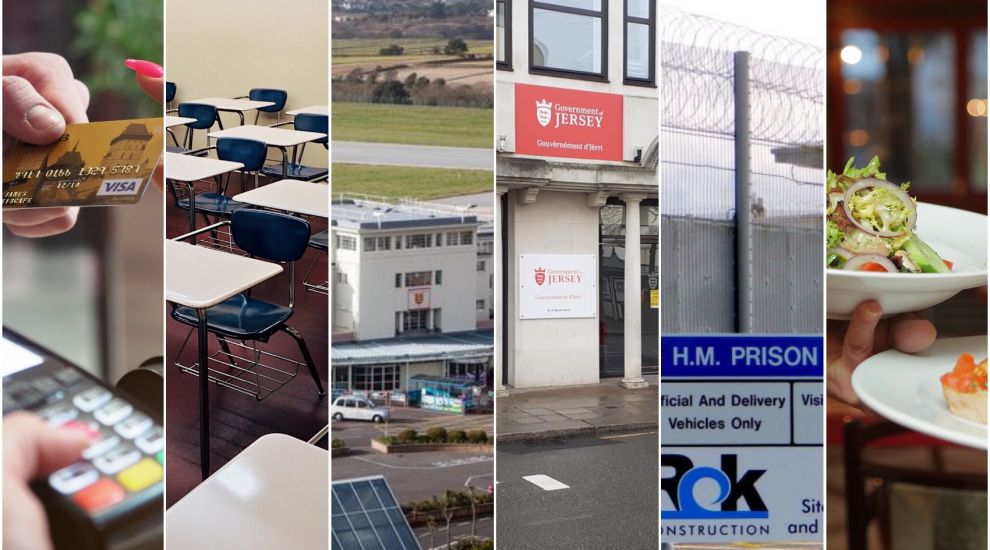

While hospitality may have stolen the headlines in the wake of covid and Brexit, it appears an island-wide recruitment crisis is brewing.
Beyond the “perfect storm” of the pandemic and the UK’s departure from the EU wreaking havoc on the island’s usual sources of labour, issues like the cost of living locally, stress, unmanageable workloads, lack of upskilling opportunities and even bullying are leading to severe problems in other areas.
From Health to Infrastructure, education, the Ports and even finance, few areas have been left untouched by staffing struggles in recent months.
Here, Express investigates the impact on Jersey’s key sectors and what it means for islanders…
The recruitment ‘crisis’ in hospitality has been well publicised in recent months. There are 149 jobs currently being advertised on gov.je – the highest of all sectors.
The industry has long-been reliant on labour moving to the island, but covid and Brexit has created a ‘perfect storm’ of EU nationals deciding to leave the island, and EU nationals choosing not to come to Jersey, forcing some premises to limit their services or even close their doors entirely.
Earlier this month, it emerged that the Government was in conversations with other Commonwealth jurisdictions, with a spokesperson telling Express that officials were investigating "the possibility of securing peak season sources of labour from other parts of the Commonwealth.”
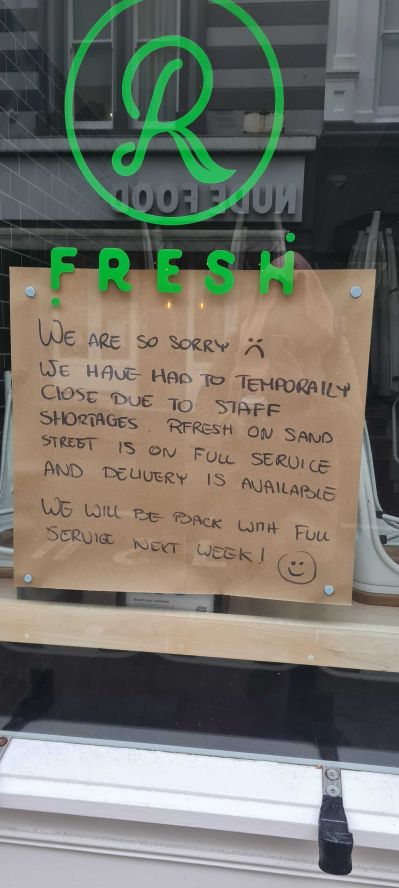
Pictured: Such signs are appearing increasingly frequently in local café, bar and restaurant windows.
Claire Boscq, Chief Executive of the Jersey Hospitality Association, said: “It is no secret that hospitality businesses are desperate for people to fill roles and as an industry, we have always looked locally before considering bringing in staff from overseas.
“The reality is that despite those efforts we have always struggled to find enough people in the island and have had no choice but to look further afield.
“What has become obvious to everyone is that Brexit and the Covid pandemic have affected our main source of staff through Europe, which is why our partners and businesses are looking to the UK, Ireland and further afield to find people that are so essential to our industry.
“We are following the political discussions over the future direction for migration very closely, but what must not be forgotten is that people who come here to work are making a massive contribution to the island.”

Pictured: Claire Boss, Chief Executive of the Jersey Hospitality Association, said covid and Brexit had affected the industry's main source of staff in Europe.
Speaking on the issue and resolutions, Les Ormes Managing Director Mike Graham said that “apart from the short and medium-term staffing issues for firms resolved by increasing pay and ensuring a good place to work and live, it's more a structural balance issue for the Island over the next few years. These are clearly difficult to resolve.”
Another factor which has frequently emerged is the cost of living on the island for workers - just recently, CafeJAC posted a plea for someone to help them find “acceptable” staff accommodation for a long-standing employee, offering a £50 voucher for anyone who could assist.
Like hospitality, retail has long relied on non-British nationals staffing its outlets and supply chain.
Indeed, the two sectors in many ways draw on the same pool of labour. There are currently 123 vacancies on gov.je in ‘Retail, Sales, Warehouse and Fulfilment'.
Mike Rutter is retail managing director for SandpiperCI - the island's biggest retailer employing around 700 people.
Pictured: Mike Rutter, Retail Manager of Sandpiper, noted that covid and Brexit had led to the labour pool for the industry getting smaller.
He said: “There are no official statistics, but our own experience strongly indicates that our labour pool has got smaller, a process accelerated by covid and Brexit.
“During and since Brexit, a number of our team applied and received Settled Status, but a number chose not to do that and return to their country of origin.
“This has left a number of sectors having to ‘fish in the same pool’ including hospitality and the care sector, which includes the Government.
“It is a sizeable issue. We are managing it by reducing operating hours and moving staff around, which has meant that we haven’t had to close any outlets.
“We are fortunate due to our size that we can do that, but the small, independent shops in town don’t have that option. We are also constantly recruiting and regularly run a roadshow, but that is clearly an added cost.
“We are doing everything we can within our control to attract people. That is the same as everyone; it is a much wider issue and one that we can’t solve on ourselves.
“More needs to be done to attract a pool of labour to the Island. It is a UK issue also: you can read a story in the nationals every day about the problem. But that filters through to us, which is exacerbated by the high cost of living here.
“All that creates a perfect storm. We offer attractive roles and packages, but we can only do so much.
“The environment for bringing people to the Island has to improve. Recruiting locally is obviously our preference but there are not enough people in the existing labour pool. We have five-year licences but no one to recruit into them.
“If we did, we would simply me moving people from Peter to Paul; it would not be increasing the size of the labour pool. We have had two years of very challenging conditions and we cannot put more strain on our incredibly hardworking employees.
“The current licence process is not fit for purpose right here and now. We also need to be careful that some sectors get Government support while others do not, because all that does is move the problem from one sector to another. We need a joined-up approach.”
With arable farming in Jersey focused on the Jersey Royal, the industry’s year is highly seasonal, focused on planting, digging and standing.
At the height of the season, the industry employs around 800 people, most of whom are on short-term permits.
Brexit did present recruiting challenges but farming has looked further afield, with employees from Eastern Europe being joined by more than 50 Filipinos this year.

Pictured: Jersey Farmers Union President Peter Le Maistre said that skilled workers, such as drivers, were more difficult to attract.
Non-EU staff are likely to feature prominently in farming in the future.
JFU president Peter Le Maistre said: “We have pushed ahead with using the nine-month work permit and visa that enables us to recruit staff from overseas.
“The JFU has processed over 100 permits in the past 12 months. Interestingly, there have been no requests from any European country.
“We are finding it not too difficult to find unskilled staff but skilled workers, such as drivers, are proving more difficult to attract.
“Many of the skilled staff did not go back last autumn because of Covid but they have returned home now. There is some apprehension that not all may return.”
On Jersey’s borders, concerns have arisen about employment too, with ongoing recruitment problems - particularly with ground handling agent Swissport - causing delays such as in July, when foggy weather and a high volume of aircraft put strain on low numbers of staff.
This weekend also saw long queues for passengers due to staffing issues at the airport, as thousands of islanders began their holiday breaks over half-term.

Pictured: Long queues at the airport on Saturday.
In August, a Ports of Jersey spokesperson explained that Swissport, were flying staff across from the UK to support the operation, while they continued with a recruitment campaign on island.
Whilst Swissport have blamed the the covid pandemic and the changing restrictions for the delays in flights, the union representing Swissport workers had a different perspective on the matter, blaming Swissport’s earlier redundancies during the pandemic.
James Turner, regional officer of Unite the Union said: “It is the opinion of Unite the Union that the continued delays at the Airport are directly caused by Swissport making redundancies earlier this year when the furlough scheme was still available to them, attempting then to rehire the same staff on lesser pay and conditions."
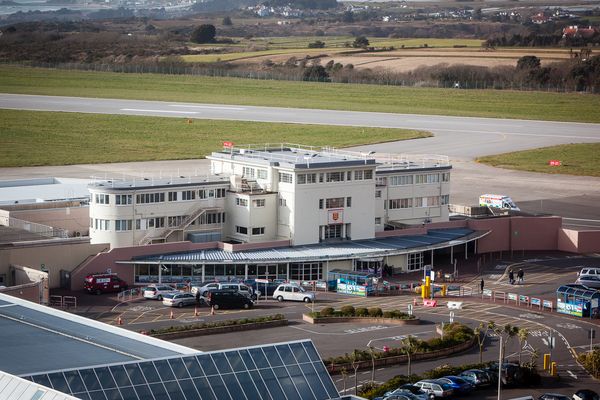
Pictured: The Union representing Swissport workers said that redundancies last year had caused holes in the service it provides.
He continued: “Clearly many staff rejected these offers as you would expect now leaving holes in the service Swissport provides, causing distress and delays to passengers of all ages and I’m sure remaining staff are feeling the pressure.
"We understand Swissport have now recruited or transferred staff from the UK mainland or other jurisdictions to temporarily plug the holes.”
There are currently 127 jobs in the sector being advertised on gov.je, including nurses, team managers, health care assistants, support workers and care assistants. Demand comes from both the private and public sector.
At the hospital, the stresses became abundantly clear in July when non-urgent surgical procedures had to be cancelled until September due to combination of staff sickness, annual leave and vacancies.
The issue returned earlier this month when non-urgent procedures had to be rescheduled due to staff shortages.
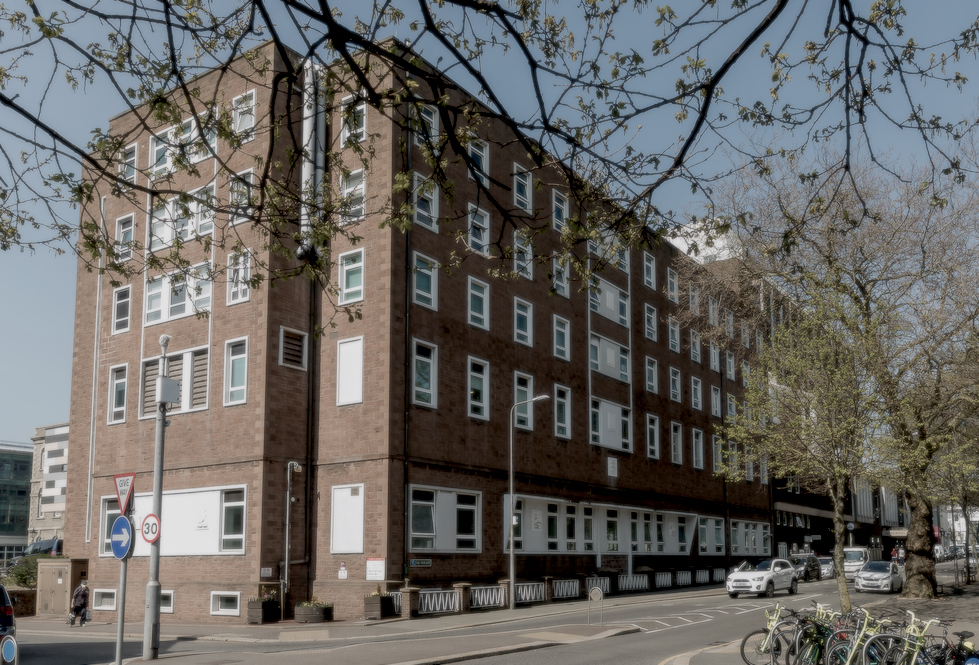
Pictured: In July, non-urgent surgical procedure had to be cancelled until September due to a combination of staff sickness, annual leave and vacancies.
Operating theatres were already operating under a ‘mitigation plan’, but the service lead told hospital workers at the beginning of this month that the staffing situation had become so challenging as a result of “sickness” that non-consultant operations would have to be suspended.
Some senior staff reacted furiously, with one arguing in an email chain seen by Express that the Health service should be honest about its staffing “crisis” and that politicians should be working harder to find solutions.
Rather than covid or Brexit, however, the "sickness" is mostly stress-linked, as a result of several cases of unresolved bullying in the department. Cost of living and accommodation are also proving to be troublesome.
Health’s outgoing Group Managing Director Rob Sainsbury said that work was underway to tackle recruitment problems by tackling longstanding cultural issues through morale-boosting initiatives like the recent Wellbeing Week and ensuring that Jersey's hospital can offer an appealing package to would-be staff.
Providing more ‘key worker accommodation’ for, among others, doctors and nurses, features in the draft bridging Island Plan.
A Government review of supply and demand has identified a potential shortfall of approximately 270 units of key worker accommodation and the plan makes provision for the supply of at least 25 key worker units a year up to the end of 2025 (75 units). It also will support proposals for the development of key worker accommodation in the built-up area.
There are currently 111 public sector jobs being advertised on gov.je. As well as the many vacancies within Health and Community Services, there are also a number of departments which have been hit.
Perhaps most notably, the Government’s Infrastructure department was recently revealed to have up to a quarter of positions vacant, with Director General of Infrastructure, Housing and Environment Andy Scate saying up to one in four roles in the department were not filled.
Speaking in a Public Accounts Committee (PAC) in September, he mentioned the department at the time was “advertising for 60 engineering roles within [their] ops and transport directorate”, as well as jobs in trading standards, environmental health and planning, and the property field.

Pictured: Director General for Infrastructure, Housing and Environment Andy Scate said up to 25% of roles in the department were currently vacant.
On the reasons for this, he pointed to cost of living issues making it harder to prevent specialists from coming to work off-island, and said they were looking at “specialist recruitment campaigns”, with a focus on places that have direct air links to the island.
Some of the impact this has had can be seen in the delays in implementing the foreshore encroachment policy, as well as significant delays in processing planning applications and conducting planning enforcement.
In the September PAC hearing, Mr Scate also noted that that 15 out of 54 roles in Jersey Property Holdings - which is responsible for the £1bn public property portfolio - were vacant, and said that the island “will only be more successful when we've grown more school leavers into property surveyors and property professionals.”
He noted that this had been a key cause in the delay of implementing island’s Public Estate Strategy back into the first quarter of 2022, with Interim Chief Executive Paul Martin going as far as to call recruitment “probably the single biggest risk” to delivering it.
To help encourage change and new recruits, Mr Scate brought up ideas like sponsorships and bursaries, citing competition from the private sector as a main challenge in recruiting graduates.
It follows July, when Environment Minister Deputy John Young slammed the “dreadful mess” of a Target Operating Model that IHE was now operating under, and forecasted that more would staff exits would follow, looking to the private sector.
“After covid, planning applications are flooding back in and the volume of work is expected to only increase,” he said.
“I desperately need some flexibility in HR policies and an end to the dreadful mess that our previous Chief Executive saddled us with, in terms of the fundamentally flawed IHE Target Operating Model.
He added: “Unless we can deal with this staffing issue, there is a serious risk that affordable homes will be delayed. It is not just planning; our building control officers are also extremely dissatisfied and many have told me they are about to leave.”
One of the other key departments hit is Children’s Services, which has several jobs currently advertised on the Government site including social workers and a Residential Manager to look after Greenfields Secure Home.
As of July this year, 33 vacancies were being plugged by agency workers, with an average time in the role for an agency worker being 10.5 months.
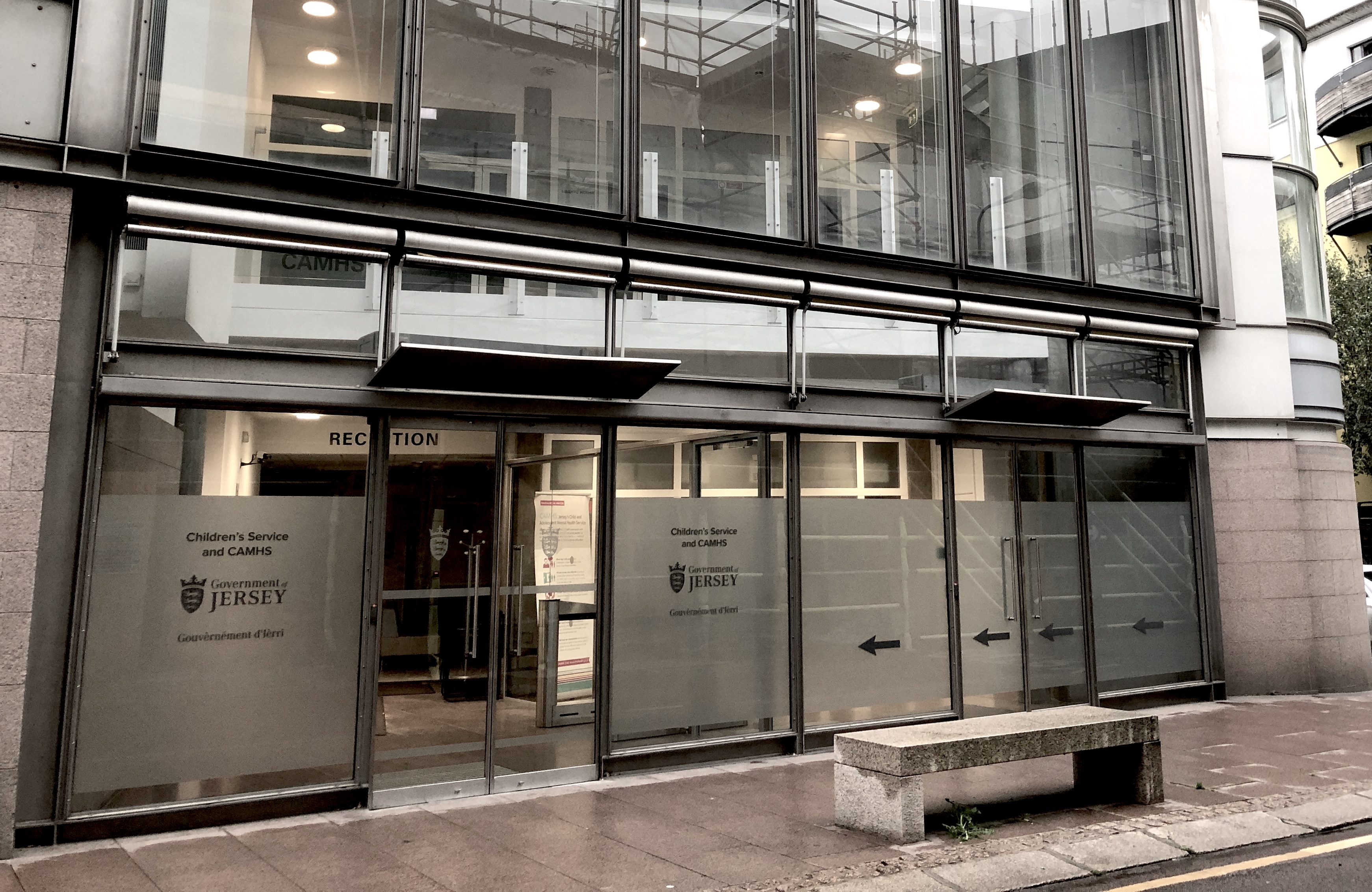
Pictured: A recent independent report on children in care on the island the island found the turnover of social workers was leaving "children, young people and families feeling undervalued, unimportant and angry.”
A Government report on its annual consultancy spend revealed that £2m was spent agency social workers in the first half of 2020, and £0.99m in the second.
Indeed, an independent report on Children’s Homes in Jersey observed that the high turnover of social workers had left “left the children, young people and families feeling undervalued, unimportant and angry.”
They also observed that “there are insufficient care staff to meet the needs of Jersey’s children and young people.
“In part, this is due to the decreasing numbers of children looked after in the children’s homes during 2019 and vacancies were not recruited to.
“However, during the covid-19 pandemic the numbers of children increased, leaving the service short."
More recently, recruitment within the care services has come under scrutiny, with a Strategic Leadership Board meeting admitting that services were “struggling” to meet the needs of young people at Secure Children’s Home, Greenfields, partly down to staffing levels and “inexperience".
This month, it became apparent recruitment issues on the island spread within the walls of HMP La Moye too, with Express learning that, due to an officer shortage, one wing in the prison was having a weekly ‘restricted regime’ day.
This means that prisoners in the wing have only able to leave their cells for around one hour (to wash and exercise) in total on a selected day each week since mid-September.
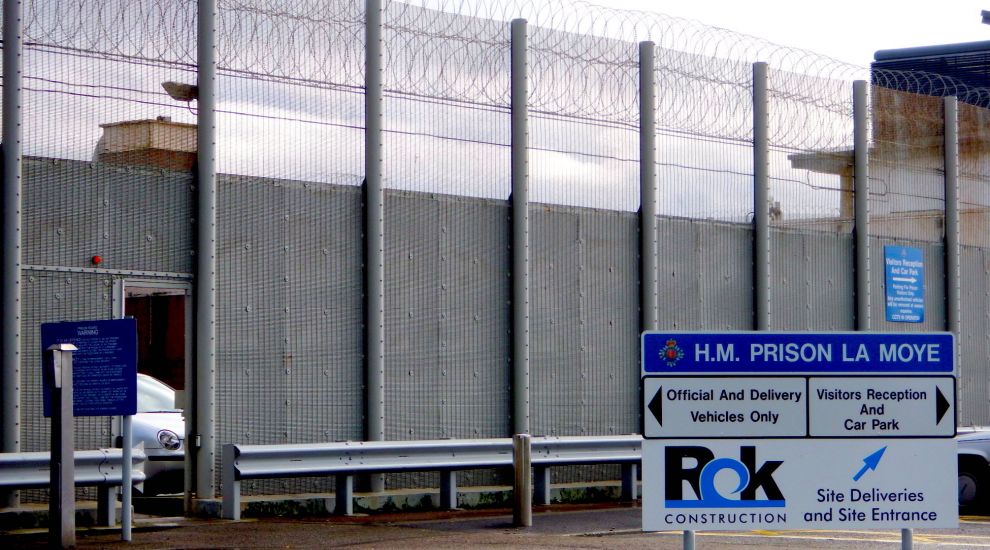
Pictured: A lack of officers has seen a "trial" implementation of a restricted regime at La Moye prison.
Speaking about the “trial” regime, a spokesperson for the Justice and Home Affairs department told Express that it would help them to “manage staff overtime and help cover existing staff shortfalls as well as continue operations within budget.”
It came after a recruitment drive in July, whereby two serving officers went into town to try and encourage new recruits.
Indeed, trouble with the prison and staff morale has been noted throughout the past year, with its 2020 annual report observing that the abrupt exit of prison Governor, Nick Cameron, after just two years in the role, had been a major factor in staff unrest.
“The changes in leadership have had a destabilising effect on staff and affected staff morale and this has been compounded by covid restrictions over the last year,” it reads.
It continues: “These, although well managed by the prison, have affected the ability to progress in a number of areas, significantly affecting staff training and development, especially where services are reliant on off-island providers visiting the site.”
Currently, no end date has been provided for the restricted regime “trial", but the prison has pledged that the measures would be reviewed “on a weekly basis” to ensure the impact on prisoners is “minimal”.
On the gov.je website, there are currently 40 vacancies currently advertised in the ‘Education and Childcare’ section, significantly less than sectors such as hospitality and retail or finance.
However, this does not mean issues do not still permeate the sector.
A spokesperson for the National Education Union told Express that the union "has ongoing concerns about recruitment and retention in education in Jersey."
Pictured: The National Education Union name checked large workloads and low salaries as factors in recruitment issues.
They continued: "Large workloads, long hours and a poor work life balance all contribute to unmanageable stress levels that have a massive negative impact on the mental health of teachers.
"Add this to the high cost of living and more importantly renting/buying property, with teachers’ low salaries compared to other graduate professions on the island, then you end up with a looming recruitment and retention crisis. This may be some of the reasons why Jersey may not be seen as such an attractive place to work for teachers.
"The HR pathways, policies on headcount and the business cases required for every new position, which includes replacing staff that have left in specific roles have also made it harder for schools to recruit.
"This has often led to schools relying on temporary positions and back filling with teacher trainees, as these roles are not classified in the same way. Shortlists for vacant teaching roles has led to only limited number of applications due to the factors outlined above.
"So, schools are using staff to teach in different areas outside of their subject specialism, from within their current workforce, to ensure that there is a person in front of the class each week and get around some of the problems with recruitment.
"This is far from the aspirations proposed in the Independent School Funding review report of October 2020, where the hope is that teachers will hold masters degrees in the future.
"As the independent school funding review puts it 'teacher quality is the strongest driver of the quality of education in any system, Jersey’s school improvement function should receive additional funding to focus on teacher quality.'
"This includes making it attractive for highly qualified teachers to come to the island in the first place, through suitable renumeration and competitive terms and conditions, with the result that the Island can recruit the best staff, to deliver the highest level of education, to the children on the Island.
"By valuing the teaching profession and working to reduce the downward factors on recruitment and retention, we can gain and retain the best skilled educational practitioners and we can really say we are putting children first."
A number of concerns were already highlighted in 2020 by a Scrutiny panel tasked with investigating recruitment in the sector, including:
Finance does face recruitment challenges, but not on the same level as hospitality, retail or the hardest hit areas of Government, with 86 jobs currently listed on gov.je under ‘Banking, Finance Legal and Insurance'.
Recruitment consultant Renny Gould of Axal Leine said there was a particular demand at the moment for trust and fund administrators with between two- and six-years’ experience.

Pictured: Claire Lyons, Head of Marketing at Jersey Finance said one of the key drivers for skill gaps on the island was people not having appropriate, industry-relevant qualifications.
“There is certainly wage competition to attract people at that level, but firms are also willing to train people at any age moving from other industries,” he said.
“I’ve recently helped a mature candidate moving into compliance for the first time to secure a job; businesses are prepared to invest in these people.”
Mr Gould added that people who had moved to Jersey continued to move up the earnings’ ladder – ‘from fields to funds’ – as had long been the case. There also continued to be movements between firms but, overall, businesses remained strong.
He said that after the pandemic, there had also been a significant rise in new business across the sector. However, he said that firms were dealing with this in multiple ways, including ‘offshoring’ some functions to lower-cost jurisdictions, including the UK.
Similarly, Claire Lyons, Head of Marketing at Jersey Finance, also acknowledged that as there was a “strong demand for high-quality expertise and knowledge within the finance sector,” it was “therefore not immune to the recruitment issues that the other sectors are facing.”
She said that to understand the industry’s future employment trends, predictions and challenges, Jersey Finance undertook an annual ‘Employment a Growth’ survey of its Members. The feedback it received included:
Ms Lyons said it was “vital that we place a real focus on the training and skills required to fill these opportunities", adding: "The way our industry will prosper is through the skills and expertise of our young Islanders, with 3,000 finding their first jobs in finance over the last decade.
“Most financial services firms train people up and develop their careers, which is one of the best ways to increase the pool of highly qualified people.
“Just over a quarter (28%) of the respondents’ organisations offer programmes for school leavers. Some of the organisations that don’t provide any initiatives for school leavers mentioned that they are supporting them in other ways, such as offering professional qualifications (ICAEW, ACCA, ICSA, TEP) and various trainee programmes.
"There are many excellent programmes and initiatives taking place to help us support the Government of Jersey’s ambition – to create a sustainable, vibrant economy and skilled local workforce for the future by delivering an economic framework to improve productivity, by nurturing and strengthening our financial services industry.
"More widely, forums such as the Jersey Employer Group are working across all industries to review the current and future needs of both employers and education providers to support this ambition so that collectively we can create a sustainable, global workforce of the future."
Comments
Comments on this story express the views of the commentator only, not Bailiwick Publishing. We are unable to guarantee the accuracy of any of those comments.